Everyone has a perspective, a “point of view,” or POV, if you will. We all have a vantage point from which we perceive the world around us with our senses and, moreover, everyone has their own way of thinking and feeling about what they are perceiving with those senses.
Thinking and feeling are interconnected. Thinking and feeling certain ways can cause a person to say certain things and behave in certain ways, and then, one will feel and think certain ways after having said or done what one has said and done because saying certain things (to yourself or out loud) and behaving in certain ways reinforces what one already thinks and feels.
It’s a loop, really.
If you’re not happily looping, however, there is a way out, and, once out, one is free to enjoy without needing anything or having to go anywhere and with the added bonus of a light-hearted happy feeling of good humor.
What could be better?

It begins with cultivating an awareness of how one’s thoughts affect one’s feelings. As an online grief assistant put it (not that you’re grieving, but this applies to all feelings), “When your thoughts appear to be the product of your overwhelming sadness and grief, know that it is your thoughts that are feeding the sadness rather than the other way around. Your thoughts generate a feeling which you then act upon” (“How our thoughts govern how we feel“).
When you have a good, bad or indifferent thought, a matching good, bad or indifferent feeling will be the result. It’s all cause (thought) and effect (feeling) in a chain of causes and effects.
If one isn’t aware of how one’s thoughts affect one’s feelings and thus one’s self and the world at large, one can unknowingly let thoughts get the better of one by looping in a way that limits or eliminates happiness, because happiness, if you dig into it, is the ground of one’s being. Happiness is there all the time in the background before we muddle ourselves with thinking and feeling.
Cue music:
As a kid you were probably naturally happy, that is, unless your happiness was tarnished by someone equally tarnished, but even then, even if it feels like your happiness is or was tarnished, even if you think happiness is completely missing, it actually isn’t.
You can have everything but still not be happy and, conversely, you can have nothing and be happy. It depends on how one thinks. The trick is to limit bad thoughts and feelings and nurture good thoughts and feelings. By repeating the latter (good thoughts and feelings), the former (bad thoughts and feelings), evaporate.
Happiness doesn’t come from outside sources like cars and money, nor does it come from experiences like world travel or cannabis imbibing. We know how thoughts and feelings come and go like clouds on any given day as we age, but one thing remains in the background blue sky: one’s self prior to thinking.
To enjoy is to agree to partake. Violence begets violence. Peace begets peace. So it is. Make your choice. Enjoyment is affirmed when one says, “I will enjoy” but not at the expense of others. Just as one can initiate enjoyment with an affirmation, so too can enjoyment be prevented by a lack of attention or unrealistic expectations.
Metaphorically speaking, who one is, as a person, is like someone wearing sunglasses. The sunglasses one wears affects how one sees. When one wears pink sunglasses, the world appears pink. Likewise, so too is the world colored by the lens of one’s thoughts and feelings about what one has seen, thought or felt in the past and is seeing, thinking and feeling in the present.
The reality that we assume to be real—that each of us perceives with our senses combined with awareness—the reality that we consider to be reality, is not really reality, at least, not directly.
Looking at reality is kind of like watching reality TV. Reality TV is not reality. It’s TV reality. So too is one’s personal subjective reality. If one perceives reality as harsh and unenjoyable, reality appears harsh and unenjoyable and then one acts accordingly.
In this choice to enjoy, willpower might come to mind, but enjoyment is like sleep, you can’t make it happen. You can, however, set the stage for enjoyment. The philosopher Arthur Schopenhauer (1788-186) said that the will is like “the strong blind man who carries on his shoulders the lame man who can see.” The strong blind man symbolizes willpower and the lame man symbolizes one’s conscious mind. Not everyone has willpower, however. That’s where a contrasting philosophical concept called free will comes in. Whereas willpower emphasizes persistence and determination, free will emphasizes the choices we make and our individual autonomy as conscious beings (The Socratic Method). Having autonomy means one is free to follow one’s heart.
It is one’s conscious mind that possesses the faculties to evaluate the consequences of one’s actions. It is will power and free will in combination that allows one to navigate the complexities of living. Repeated thoughts become like grooves in a record that play again and again. If one has been treated harshly, one may treat others likewise but if one perceives the world without a bias initiated by a past experience, one can get out of the rut of past thinking to realize the beauty that is in front of one, like a blue sky hidden by clouds.
Clouds are like thoughts. They come and they go. They cover the background blue sky which is the happiness we feel when we let all those thoughts drift on by.
If one can see the big-picture, one can see one’s sameness with others and the beauty of living and, if one can see that big-picture and enjoy the feeling of being and breathing in that blue sky feeling without thinking or needing, well then, one is effortlessly and naturally happy.
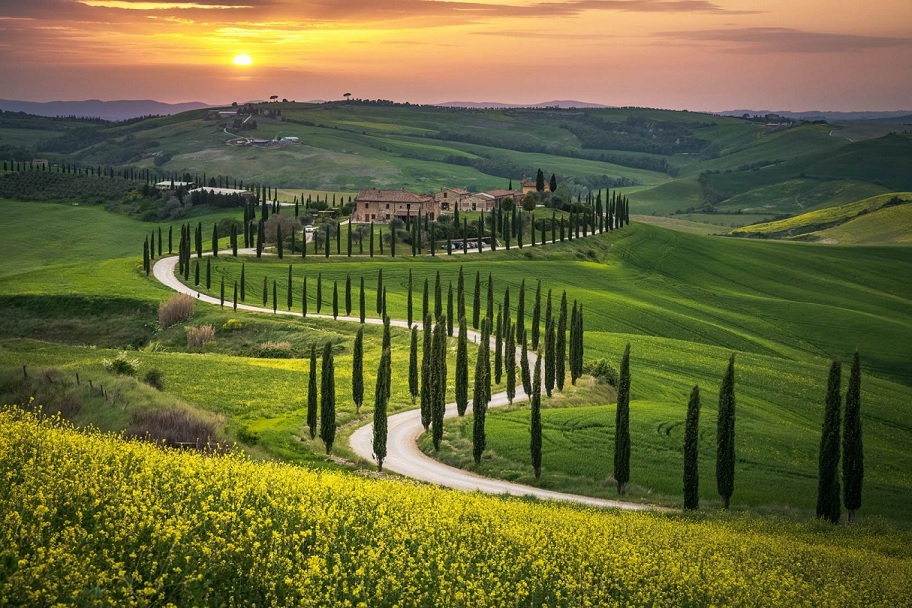
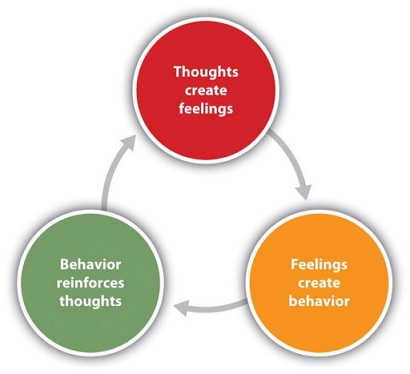
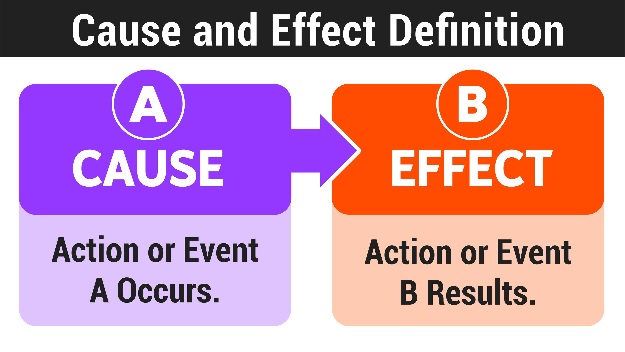

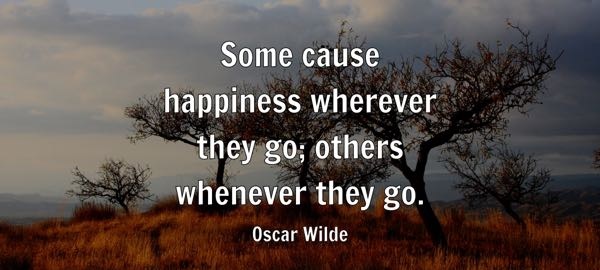
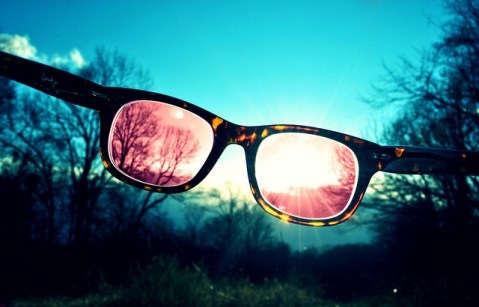



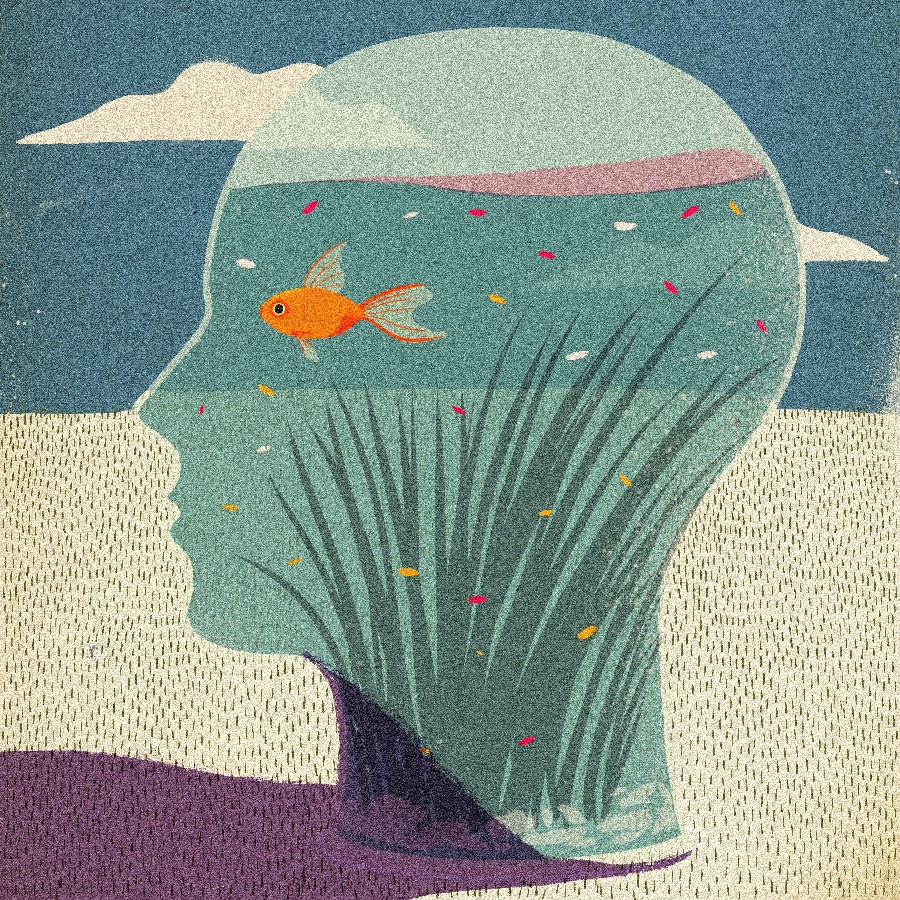
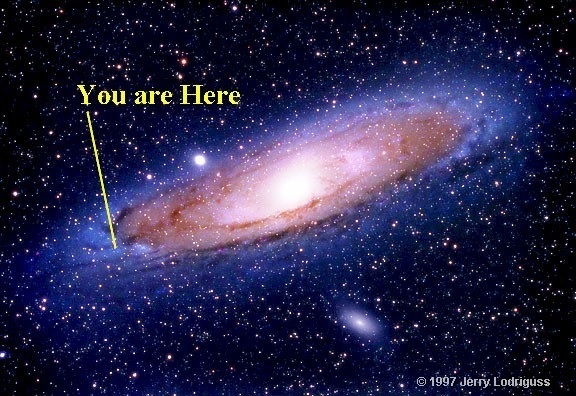
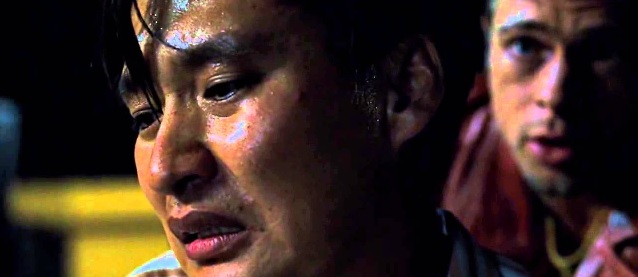


 It was in a Human Resources Leadership seminar that a Power Point slide with two bullet points was shown:
It was in a Human Resources Leadership seminar that a Power Point slide with two bullet points was shown:


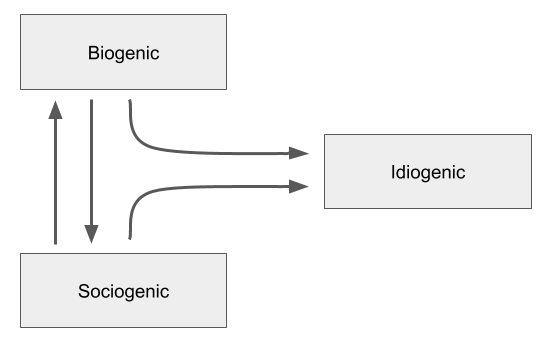






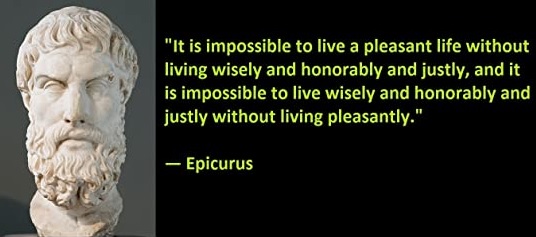




 We know living things are made up of cells and a cell is a “protein-based robot too small to feel or experience anything”
We know living things are made up of cells and a cell is a “protein-based robot too small to feel or experience anything” 





 This is about “
This is about “



 If you’re a relativist, it’s not that things aren’t true one way over another, it’s just that, what’s true for you might depend upon context, laws of physics and your personal and cultural beliefs.
If you’re a relativist, it’s not that things aren’t true one way over another, it’s just that, what’s true for you might depend upon context, laws of physics and your personal and cultural beliefs.
 This is a shift from first person—“I am living my life! We do things our way”—and second person—“You wait here”—to third person—he, she, it, they—with one’s self observed and observing.
This is a shift from first person—“I am living my life! We do things our way”—and second person—“You wait here”—to third person—he, she, it, they—with one’s self observed and observing.

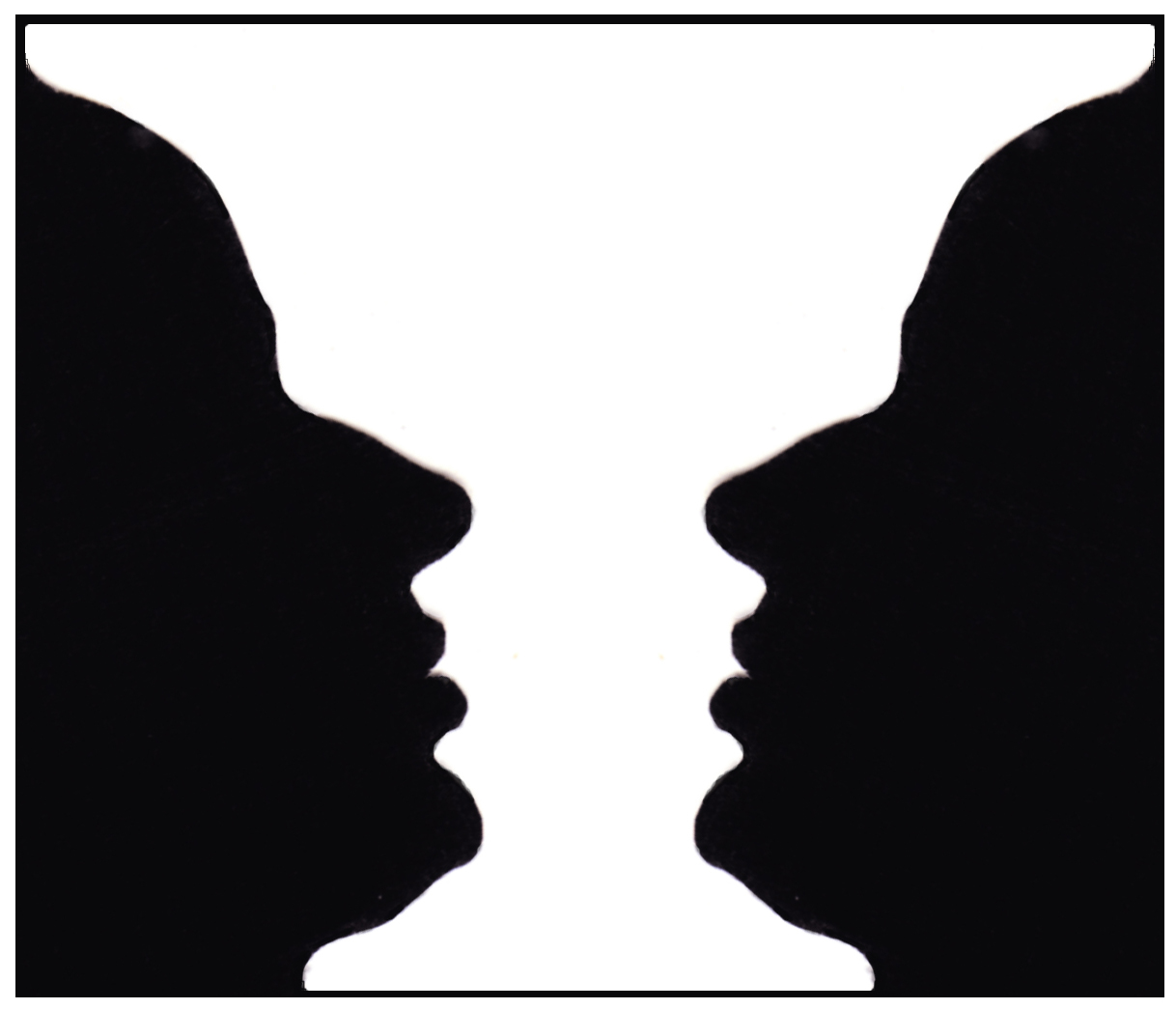






 Time can feel like a Sword of Damocles hanging above your head. Anybody who enjoys wealth, luxury and power lives under threat and anybody who has nothing envies those who have what they want. Gated communities imprison the pampered as poverty imprisons the poor. Questions about whether or not you’re making the most of your time happen when you’d rather be doing something else. In moments of boredom, irritation and/or annoyance, that’s when the present turns into the past like the end of a toilet paper roll running out fast.
Time can feel like a Sword of Damocles hanging above your head. Anybody who enjoys wealth, luxury and power lives under threat and anybody who has nothing envies those who have what they want. Gated communities imprison the pampered as poverty imprisons the poor. Questions about whether or not you’re making the most of your time happen when you’d rather be doing something else. In moments of boredom, irritation and/or annoyance, that’s when the present turns into the past like the end of a toilet paper roll running out fast.
 You’re like a candle burning itself out. Time for you to lighten up. Remember what Mary Poppins said, “In every job that must be done, there is an element of fun. You find the fun and, ‘Snap!’ The jobs a game. And every task you undertake becomes a piece of cake, a lark, a spree, it’s very clear to see” (“
You’re like a candle burning itself out. Time for you to lighten up. Remember what Mary Poppins said, “In every job that must be done, there is an element of fun. You find the fun and, ‘Snap!’ The jobs a game. And every task you undertake becomes a piece of cake, a lark, a spree, it’s very clear to see” (“ When you drop labeling things as “I” and “mine,” you feel the world directly. Disturbing emotions are empty of identify and so is everything else. Look at the one who feels. Look without distraction and anger turns to nothing. Nothing stands alone. Everything is taken together. You see the world through a window where what’s outside is seen through your own reflection. We divide between self and everything else but everything else is one seamless landscape.
When you drop labeling things as “I” and “mine,” you feel the world directly. Disturbing emotions are empty of identify and so is everything else. Look at the one who feels. Look without distraction and anger turns to nothing. Nothing stands alone. Everything is taken together. You see the world through a window where what’s outside is seen through your own reflection. We divide between self and everything else but everything else is one seamless landscape.





 That we split reality between observer and observed isn’t obvious. We’re often on auto-pilot, thinking thoughts that may or may not be stupid, but sometimes—on vacation, while washing dishes or doing nothing, in a relaxed moment—we emerge from being babies in a baby world to feeling aware of our self being here in this world!
That we split reality between observer and observed isn’t obvious. We’re often on auto-pilot, thinking thoughts that may or may not be stupid, but sometimes—on vacation, while washing dishes or doing nothing, in a relaxed moment—we emerge from being babies in a baby world to feeling aware of our self being here in this world! Today we celebrate you! We celebrate you, not to be egotistical, narcissistic, solipsistic or to show you how equally equal you are with 7.5 billion other people (according to a
Today we celebrate you! We celebrate you, not to be egotistical, narcissistic, solipsistic or to show you how equally equal you are with 7.5 billion other people (according to a 








 Stage one is like childhood. The focus is on fun. It’s the aesthetic stage. Picture someone self-indulging in enjoyable experiences who gets bored and feels empty and lonely. He buys a car and enjoys it for a while but gets bored so the search for pleasure continues. (It’s a circular trap.)
Stage one is like childhood. The focus is on fun. It’s the aesthetic stage. Picture someone self-indulging in enjoyable experiences who gets bored and feels empty and lonely. He buys a car and enjoys it for a while but gets bored so the search for pleasure continues. (It’s a circular trap.) Ethical people are concerned with actions effecting others because ethical choices evoke a higher set of principles. But the ethical life doesn’t leave room for self-exploration which is a key to stage three – the highest plane of existence (
Ethical people are concerned with actions effecting others because ethical choices evoke a higher set of principles. But the ethical life doesn’t leave room for self-exploration which is a key to stage three – the highest plane of existence ( “Marry and you will regret it! Don’t marry, you will also regret it! Marry, don’t marry, you’ll regret it either way. Laugh at the world’s foolishness, you will regret it. Weep over it, you’ll regret that too. Hang yourself, you’ll regret it. Don’t hang yourself and you’ll regret that too. Whether you hang yourself or don’t hang yourself, you will regret both. This, gentlemen, is the essence of all philosophy.”
“Marry and you will regret it! Don’t marry, you will also regret it! Marry, don’t marry, you’ll regret it either way. Laugh at the world’s foolishness, you will regret it. Weep over it, you’ll regret that too. Hang yourself, you’ll regret it. Don’t hang yourself and you’ll regret that too. Whether you hang yourself or don’t hang yourself, you will regret both. This, gentlemen, is the essence of all philosophy.” Most people, generically speaking, if asked how they should live, might blink and mumble something like, “Oh? I dunno? Be a good person? Take care of family? Work hard? Do something you love? Think happy thoughts? Be a good person? (Oh, did I say that already?)...”
Most people, generically speaking, if asked how they should live, might blink and mumble something like, “Oh? I dunno? Be a good person? Take care of family? Work hard? Do something you love? Think happy thoughts? Be a good person? (Oh, did I say that already?)...” To see clearly and holistically is the root of all wisdom. You can look back on your life and realize that sometimes you were walking in a fog without knowing. The clouds were all around but now, they’re gone.
To see clearly and holistically is the root of all wisdom. You can look back on your life and realize that sometimes you were walking in a fog without knowing. The clouds were all around but now, they’re gone.
 It’s a question we might ask our self on occasion. There’s a lot we should do but don’t. Why is that? Maybe it’s because we’re human and being human isn’t easy. We know where we’re headed. As Sigmund Freud said, “Everyone owes nature a death.”
It’s a question we might ask our self on occasion. There’s a lot we should do but don’t. Why is that? Maybe it’s because we’re human and being human isn’t easy. We know where we’re headed. As Sigmund Freud said, “Everyone owes nature a death.”
 Stuck between finite awareness and infinite imagining and longing, everyone wants to enjoy themselves, but feeling ethically responsible in our ever expanding human ant hill can get in the way of enjoying.
Stuck between finite awareness and infinite imagining and longing, everyone wants to enjoy themselves, but feeling ethically responsible in our ever expanding human ant hill can get in the way of enjoying.
 The human race as a whole has replaced the role of God and fate. This has encouraged a standard of morality that doesn’t rise higher than the goal of the greatest happiness for the greatest number.
The human race as a whole has replaced the role of God and fate. This has encouraged a standard of morality that doesn’t rise higher than the goal of the greatest happiness for the greatest number. We’re encouraged to go from a selfishly materialistic “me generation” into a “we generation” where we celebrate differences at the same time we level everyone in the mania of a carefully orchestrated “We Day” pep rally for social change (see:
We’re encouraged to go from a selfishly materialistic “me generation” into a “we generation” where we celebrate differences at the same time we level everyone in the mania of a carefully orchestrated “We Day” pep rally for social change (see: 
 Both “me” and “we” perspectives seem oblivious of transcending their pronoun. Do you put yourself first or the group? Some might say, “That depends.” Sigmund Freud (1856-1939) observed, “In the depths of my heart I can’t help being convinced that my dear fellow-men, with a few exceptions, are worthless.”
Both “me” and “we” perspectives seem oblivious of transcending their pronoun. Do you put yourself first or the group? Some might say, “That depends.” Sigmund Freud (1856-1939) observed, “In the depths of my heart I can’t help being convinced that my dear fellow-men, with a few exceptions, are worthless.” People know you by what you do but how do you identify yourself? Your self is your will and your lack of will. Your will pulls you together into a coherent whole complete with muscular tension.
People know you by what you do but how do you identify yourself? Your self is your will and your lack of will. Your will pulls you together into a coherent whole complete with muscular tension.